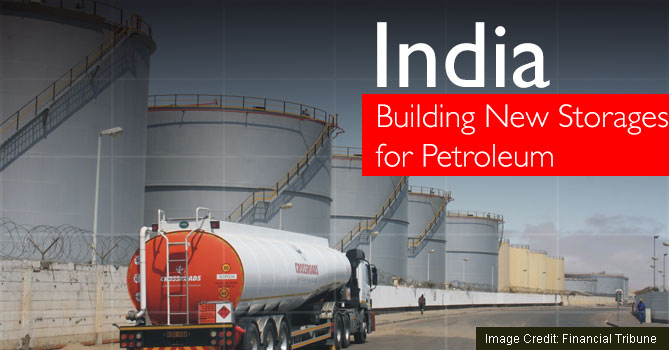
Crude oil has become an essential commodity for every nation, as a large part of global economies is dependent on this natural resource. Over the last few decades., crude oil has played an influential role in the situation of global markets as well as been a bone of contention between governments. India, which imports close to 80 per cent of the crude oil relies heavily on the Organisation of the Petroleum Exporting Countries (OPEC), that makes the country vulnerable to the downfall or external instability.
Due to the recent rally in global crude oil prices that impacted the prices of oil and led to inflation in India, Prime Minister Modi announced the building up of two new caves for strategic petroleum reserves (SPRs) to improve country’s oil reserves that can be used to during market exigencies. PM Narendra Modi made the announcement on June 27, the two new caves will be built at Chandikhol in Odisha and Padur in Karnataka, with a storage capacity of 4.4 million tonnes and 2.5 million tonne crude oil respectively.
Government’s contingency plans
The government has come up with highly thought-after contingency plan to ease the tensions surrounding the crude oil and rising prices of petroleum. These two caves in Chandikhol and Padur will add up to the three existing caves in Mangaluru, Visakhapatnam, and Padur and increase the SPR capacity of India to more than 12 million tonnes of crude oil. These five caves can reduce the government’s dependency on crude oil exporting countries and make the country be better prepared during the volatile market or global economy. The government’s move has been a well-thought-of plan as the country will not have to react every time there is a global exigency.
Time to look for alternatives
The countries are looking at alternate sources for extracting crude oil, that can cause more damage to the environment and the operation cost can be highly expensive. It is time that the governments across the world needs to look at the alternates to replace exhausting natural resource like petroleum. According to BP, a multinational oil and gas conglomerate, the current level of crude oil (nearly 1.7 trillion barrels) present on the Earth will dry up in the next 50-odd years at the current rate of extractions. With global warming becoming a significant agent of climate change, the burning of fossil fuels needs to be reduced and instead work towards using cleaner renewable resources to replace the non-renewable sources of energy.




